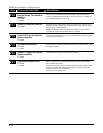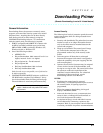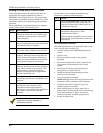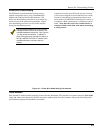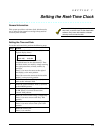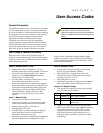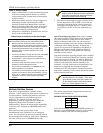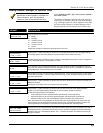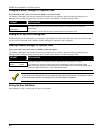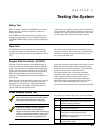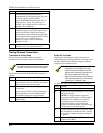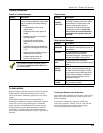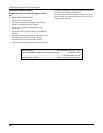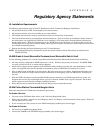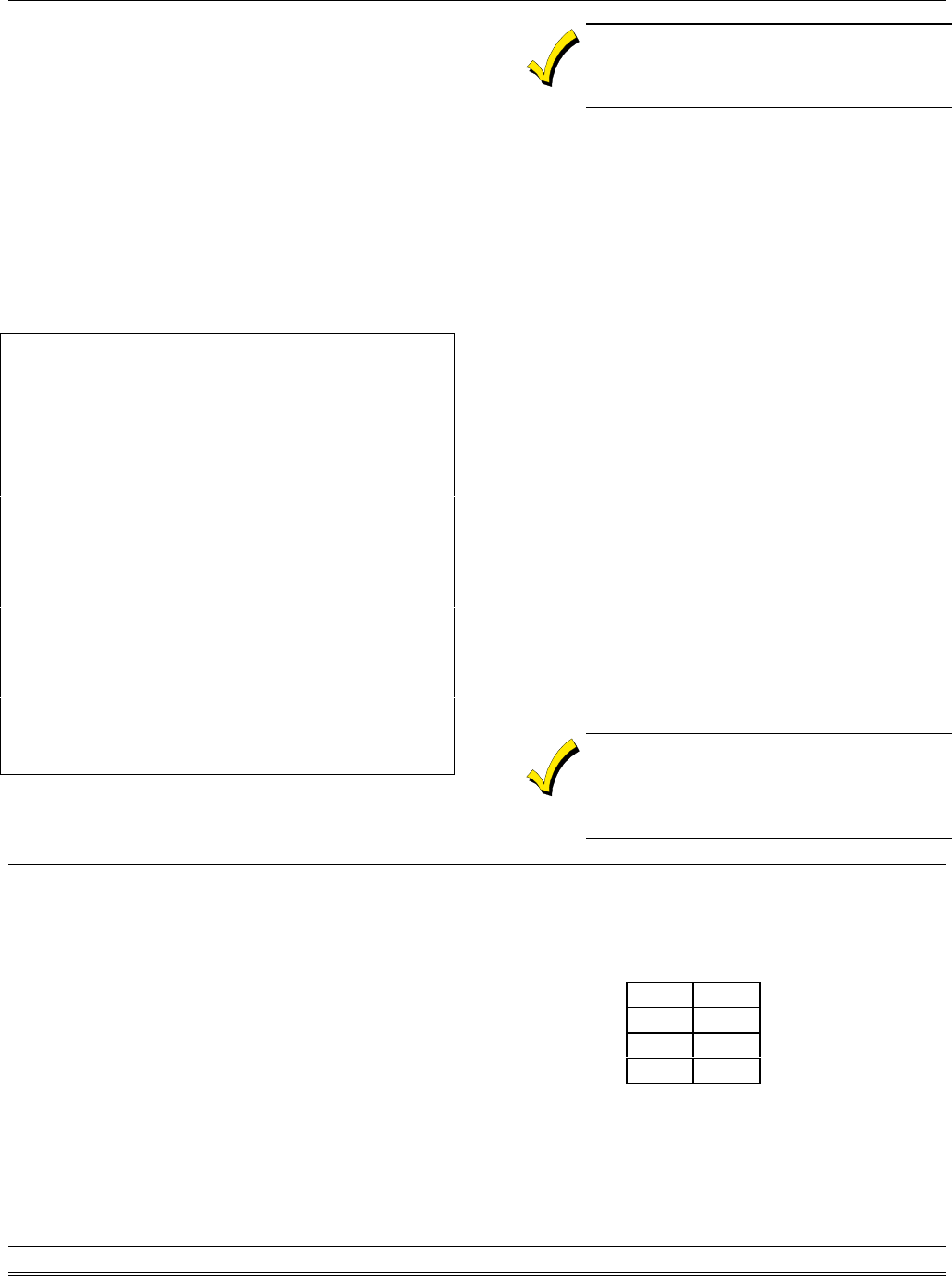
VISTA-40 Installation and Setup Guide
8-2
Level 6: Duress Codes
• Sends a silent alarm to a central monitoring station
if the user is being forced to disarm (or arm) the
system under threat (system must be connected to
a central station).
• When the system’s Auxiliary Voltage Triggers are
connected to another communication’s media
(Derived Channel/Long Range Radio), note that
duress is signaled on the same trigger that signals
silent panic (whereas duress has its own unique
report when digitally communicated).
• Assigned on a partition-by-partition basis, and can
be any code or codes desired.
Duress Reporting Note: A non-zero report
code for zone 92 (duress) must be programmed,
and partition-specific field *85 duress location
enabled, to enable Duress reporting.
• The Duress report-triggering logic activates on the
5th key depression (such as OFF), not the 4th key
depression (last digit of code). Duress reports are
not triggered if the 5th key is a [*], such as when
you perform a GOTO or view the capabilities of a
user.
General Rules on Authority Levels and Changes
The following rules apply to users when making modifications
within the system based on the user code authority levels:
• Master Codes and all lower-level codes can be used
interchangeably when performing system functions within a
partition (a system armed with a user’s temporary code can
be disarmed with the Master Code or another user’s
temporary code), except the Operator Level C Code
described above.
• A user may not delete or change the user code of the SAME
or HIGHER authority than that which he is assigned.
• A user (levels 0, 1 and 2 only) may only ADD users to a
LOWER authority level.
• A user may assign other users access to only those
partitions to which he himself has access.
• A user code can be DELETED or CHANGED only from
within the partition it was created in.
• User numbers must be entered in 2-digits. Single-digit user
numbers must, therefore, always be preceded by a “0” (e.g.,
03, 04, 05, etc.). Make sure the end user understands this
requirement. Temporary codes are entered as 4-digit
numbers.
Open/Close Reporting Note: When a user is added,
the system prompts for Open/Close reporting capability
only if the installer is adding the new user. When a
Master or Manager adds a new user, the new user’s
Open/Close reporting is the same as that of the Master
or Manager who is adding the user. If Open/Close
reports are required to be selectable by the Master or
Manager, the Installer should assign two Master or
Manager user codes: one with Open/Close reporting
enabled, and one without.
Note that Open/Close reporting of Quick Arm is enabled
if User 02 is enabled for Open/Close reporting, and that
Quick Arm reports as User 00. In order for Quick Arm
reports to be sent for all partitions, User 02 must have
authority and Open/Close must be enabled for all
partitions. If a code with access to all partitions is not
desired, it is suggested that user 02 be assigned
authority level 5 in all partitions, and that the code be
kept secret. Authority level 5 cannot disarm the system
unless armed by that user.
ADEMCO Contact ID format is capable of
reporting Users 01-70 uniquely. If any other
report format is used, only user numbers 01 –
15 can uniquely report to the central station.
Users 16 – 70 will report as User 15.
Multiple Partition Access
Each user is programmed for a primary (home)
partition. A user can also be given access to operate one
or both partitions. Within each partition, each user
may be programmed to have different levels of
authority. For example, User 03, the VP of
Engineering, could be assigned to work within the
Engineering Department (Partition 1) of ABC
Manufacturing. Because he needs the full capabilities
in his area, he is assigned as a MASTER with Level 1
authority.
He must also be able to gain access to the
manufacturing area (Partition 2) on an emergency
basis. You can set this up easily by requesting that he
also be assigned to Partition 2, with a level of authority
set lower, such as Level 4 (OPERATOR Level B).
The control automatically assigns him the same user
number within Partition 2.
EXAMPLE OF MULTIPLE PARTITION ACCESS
Part 1 Part 2
User 3 User 3
Level 1 Level 4
Master Oper B
In the above example, User 3 has MASTER authority in
Partition 1 and OPERATOR B authority in Partition 2.
His user number is the same for both partitions.



